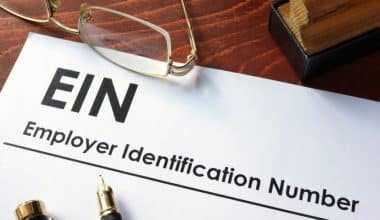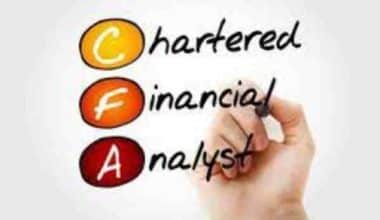The best way to have an advantage over competitors in the accounting field is to obtain a bookkeeper certification. A certification in bookkeeping not only raises the value of your skill set but also enables you to stay current with technological advancements and industry trends. The qualifications, exams, and ongoing education needed to obtain CPB or CB certification are covered in more detail in the following paragraphs.
Bookkeeper Certification
A bookkeeper certification is a professional title that indicates a person’s proficiency in bookkeeping topics related to the control of a company’s financial transactions and reports. Both colleges and reputable professional associations offer certificate programs.
The primary difference between the license from the NACPB and the certification from the AIPB is the title that is granted as a result. People who have earned their AIPB credentials are given the Certified Bookkeeper (CB) designation. The “Certified Public Bookkeeper” (CPB) designation is given to those who obtain a license through NACPB. No formal education is necessary to complete the AIPB certification process.
But the NACPB advises a bachelor’s degree in finance, accounting, or a related field to obtain the CPB license. If you’re considering obtaining CB certification or CPB licensure but aren’t sure which would be better for your career, keep in mind that a professional designation can boost your earning potential. According to Payscale, certified bookkeepers make an average of $52,000 per year. Typically, bookkeepers make around $45,000 per year.
Additionally, the CB and CPB certifications are respected in the bookkeeping industry and can make you stand out to employers.
How to Choose the Best Bookkeeper Certification for You
Not every bookkeeping certification will work for your particular needs. Follow the instructions below to find the option that will best serve your needs.
#1. Select a Career Goal for Bookkeeping
Decide what you want to accomplish as a bookkeeper and what skills you want to learn. Having a clear understanding of your objectives can help you choose the best certification program for you.
#2. Prioritize Your Goals
Make a list of the elements that are most significant to you using the table above as a starting point. These may consist of:
- Cost
- Requirements
- Length of time
- Delivery strategy
- Knowledge and abilities included
- Program outcomes
Consider each aspect, and then rank them in order of importance for you. For instance, you might be able to compromise on price as long as you can get your hands on a certificate quickly. Or maybe the results of the programs are what you care about most. Make sure you know exactly what you’re looking for.
#3. Do Some Research on Relevant Credentials
Once you’ve determined what’s most important in a bookkeeper certification program or certificate, you can start looking into which choices most closely match your priorities. Carry out extensive research on the relevant credentials needed for the bookkeeping certification of your choice.
#4. Sign Up for the Training, Then Finish It
After deciding on a program, finish the required coursework or training. Make sure to schedule enough time to learn the skills that your certification or certificate program requires, and be aware of any deadlines for taking a certifying exam.
Display your credential on LinkedIn and include it in your resume once you’ve finished a program and/or passed a certification exam. By displaying your credentials online, you can visually demonstrate your abilities and knowledge and perhaps catch the eye of employers.
#6. Continually Improve Your Skills
Given the constant changes in both the business world and the need for bookkeepers, it is imperative to keep your skills current. By doing this, you’ll be able to successfully manage business challenges encountered in the real world and preserve your status as a marketable candidate.
You might have to frequently recertify to keep your credentials up-to-date, depending on the certificate or certification program you complete. Renewing your certification will allow you to show that you are knowledgeable about the most recent bookkeeping techniques, strategies, and tools.
Benefits of a Bookkeeper Certification
With certification, bookkeepers are better able to comprehend data collection and interpret data, assisting leaders in making wise decisions. Certification is becoming more and more of a requirement for jobs, which opens up opportunities for those who invest in ongoing education.
Many people call themselves bookkeepers, but only those with certification can prove that they possess the knowledge and abilities needed to generate accurate financial data. A person can demonstrate that they are a high achiever qualified for compensation and opportunities by obtaining certification. They can then excel in their field and be compensated accordingly. People with certifications are aware of and adept at using the most recent software, which is constantly evolving in the bookkeeping industry.
How to Become Certified as a Bookkeeper
The initial step in the procedure is deciding whether to apply to be a CB or CPB. The benefits to your career will be worth the time, patience, and effort it takes to earn your credential. The following actions need to be taken after you’ve decided to pursue one of these professional designations.
#1. Meet All the Program Requirements
To become a certified bookkeeper, you must first confirm that you have satisfied all professional and educational requirements. Your supervisor or a previous employer must verify the number of experience hours you have regardless of whether you are working toward credentials through AIPB or NACPB.
Additionally, the Certified Bookkeeper Code of Ethics is a requirement of AIPB for potential CBs. A commitment to upholding the CPB Professional Code of Conduct is requested by NACPB. The application form you must submit includes both codes of conduct.
#2. Enroll in a Program
You need to take several courses before you can just take either exam. Any prior knowledge of bookkeeping does not exempt you from taking these prerequisite classes. If you complete the courses and workbooks, studying for and passing your bookkeeping exam may be simpler.
- AIPB CB Courses
The CB preparatory course offered by AIPB consists of a set of six self-paced classes and corresponding workbooks. Both individual and group purchases of the courses are available. AIPB also has extra courses for sale, such as mastering double-entry bookkeeping. These programs do not, however, count toward the CB exam’s knowledge requirements.
- NACPB CPB Courses
You must pass four bookkeeper certification exams, according to the NACPB, to become a CPB. These cover credentials for accounting, QuickBooks, payroll, and bookkeeping. Each comes with a complimentary, 11–13 week long self-paced course. Pre-assessment tests, the actual course, post-assessment tests, and the certification exam are all components of certification.
Keep in mind that the NACPB’s CPB license and bookkeeper certification are two separate things.
#3. Pass the Credentialing Exams
The time has come to take the exams after you have satisfied all the prerequisites for your chosen credential and finished your study sessions.
- CB Exam
The CB exam consists of four sections. To finish the first two, you must be present. The third and fourth sections are available for home study. The AIPB bookkeeping certification exam is divided into four sections, including:
- Adjustments and error correction
- Payroll and depreciation
- Inventory and internal controls
- Fraud prevention
The last two parts of the exam are open to notes and your workbook, but the first two are closed.
Register to take the exam’s first section at a Prometric testing facility close to you. A valid form of identification and any necessary materials should be brought on the exam day. So, After completing part one of the CB exam, repeat this process to take part two
- CPB Exam
The NACPB offers all of its exams online. Register with the online testing center to schedule your exam. You’ll receive instructions via email on how to best prepare for and set up your testing space at home, a nearby library, or another place with an internet connection.
You must complete the certification tests in accounting, bookkeeping, payroll, QuickBooks, and these other subjects before you are eligible for CPB licensure. If you fail the certification exam the first time, you can retake it for $50 for NACPB members and $75 for nonmembers.
Bookkeeper Certification Program
Both designations require you to demonstrate your proficiency in bookkeeping before you can receive them.
NACPB
You must amass 2,000 hours—or a full year—of professional experience—to be eligible for the CPB license. CPB licensure is valid for a year, after which you’ll need to show that you’ve completed all required CEUs and pay a yearly membership fee. Each year of licensure for those with CPB credentials calls for 24 hours of CEUs.
AIPBA: A minimum of two years of bookkeeping or accounting experience or 3,000 hours of experience are required for CB certification.
The CPB Bookkeeping Certification’s Price
The cost of becoming a CPB includes four courses and the associated tests. These resources cost a total of $1,276 if you buy them all together.
Additionally, a $100 application fee is required. NACPB members pay $25 for yearly renewal applications, while nonmembers must pay $50. Additionally, membership grants you access to tools that can aid in your CPB preparation.
Cost of the CB Bookkeeping Certification
For nonmembers and members alike, the AIPB levies a $25 registration fee to become a CB. The organization also provides discounted one-, two-, and three-year memberships.
For study materials like workbooks and preparatory courses, the AIPB charges members $254 and non-members $324. The first two sections of the AIPB’s four-part test are each $100. The final two exam sections can be found with the workbooks for no additional cost.
Which Bookkeeping Certification Is Best?
Regarding membership, resources, and reoccurring credentials, both provide comparable advantages. There are other bookkeeping credentials available, but those provided by AIPB and NACPB are the most well-known and regarded. The title that is awarded as a result is the main distinction between the certification from the AIPB and the license from the NACPB. The Certified Bookkeeper (CB) designation is awarded to individuals with AIPB credentials. The title “Certified Public Bookkeeper” (CPB) is awarded to those who become licensed through NACPB.
Is a Bookkeeping Certificate Worth It?
Given that bookkeepers are in charge of handling money, getting a bookkeeping certification or completing a bookkeeping certificate is a way to show that you have a standardized understanding of bookkeeping procedures and methods. Additionally, it’s an excellent way to hone key bookkeeping skills like billing, spreadsheets, accounts payable, and more.
How Much Do Certified Bookkeepers Make a Year?
In the United States, the typical bookkeeper’s salary ranges from $38,326 to $47,569. Salary ranges can differ significantly based on a variety of significant factors, including education, credentials, additional skills, and the length of time you have been in your profession. A Full Charge Bookkeeper makes an average yearly salary of $54080 in the US. Your salary will increase as your experience grows.
What Is a Certified Bookkeeper Called?
The National Association of Certified Public Bookkeepers (NACPB) is recognized as the licensing body for the Certified Public Bookkeeper (CPB) designation. The license is honored at all establishments in the United States and its territories. A certified public bookkeeper is in charge of accurately entering each financial transaction into a specific piece of software. While some professionals specialize in a particular field, such as payroll, others handle complex tasks, especially in small businesses.
Should I Be a Bookkeeper or a CPA?
Their respective roles, pay scales, and levels of professionalism are where the two are most different from one another. A bookkeeper’s primary duty is to keep an organized record of all financial transactions, whereas a CPA’s primary duty is to offer financial advice. The duties of a CPA, in contrast to a bookkeeper, go beyond keeping accounting records. Keep in mind that a bookkeeper’s only duty is to maintain financial books and records; analysis is not part of their job description when comparing the roles of a CPA and a bookkeeper.
Is the Certified Bookkeeper Exam Difficult?
It’s important to note how challenging the bookkeeping certification test is. Candidates should make every effort to prepare for the exam, even though it is unquestionably less challenging than the CPA exam. The certification exams are suitably demanding and in-depth. Multiple-choice questions are used in the exams to gauge student understanding of important subjects like adjustments and error correction, payroll, inventory, and fraud prevention. Exam preparation is encouraged. Obtaining bookkeeping certification can make you stand out in the job market.
Which Accounting Certification Is Easiest?
Since each of them requires a specific set of abilities and knowledge to pass, there is no conclusive way to determine which accounting certification is the simplest. Your interests and skills will still play a role in the certification you decide to pursue. The CPA, which is also the most widely used and practical certification for accounting positions, is followed by the CFA for finance and auditing professionals.
In addition, the CMA is utilized for internal management and executive-level positions, the EA is utilized for tax professionals, and the CIA is utilized for compliance officers and auditors.
These certifications are all difficult to obtain because they each have stringent requirements that must be satisfied in addition to lengthy exams. The CIA designation has the shortest exam and fewest requirements of any certification.
Is Bookkeeping a Good Side Hustle?
If it’s something you enjoy and are especially good at, bookkeeping can be a very lucrative side business. Almost all businesses need bookkeeping services, whether they are smaller corporations or sole proprietors who maintain their private books.
Conclusion
Bookkeepers produce and preserve financial documents for start-ups, nonprofit organizations, and accounting firms. It is not necessary to have a license to work as a bookkeeper, but some professionals choose to get certified to highlight their abilities to potential employers and stand out during the hiring process. Certification candidates can retake exams as many times as needed. The CB and CPB exams have a fee for retaking them. Professionals who fail their first attempt at the CB exam have 30 days to retake it.
To obtain your bookkeeping certification, follow these steps: finish taking the pre-test for Accounting Fundamentals, complete the Accounting Fundamentals course, succeed on the post-test, and pass the Bookkeeping Certification exam.
Related Articles
- FREELANCE BOOKKEEPING: Freelance Bookkeeping Jobs in 2023 With Salaries
- What Is CFA: Meaning, Requirements, Salary & Program
- BOOKKEEPING SERVICES FOR SMALL BUSINESS: Top Best for Small Business in 2023
- BOOKKEEPING BUSINESS: What Is It, How to Start One, Cost & Salary
- CERTIFIED BOOKKEEPER : What They Do, Salary & How to Become One






